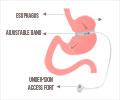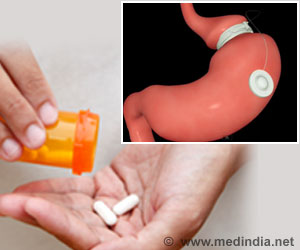Muscle mass and fat-free mass (organs, bones, tissues) levels are maintained in the body following a rapid post-surgical weight loss, showed new study.

‘Muscle mass and fat-free mass (organs, bones, tissues) levels are maintained in the body following a rapid post-surgical weight loss.’





"This study demonstrated that after the first year of weight loss, there is some loss of muscle that happens over time, but apparently not any more than age-related loss," said lead author Lance Davidson, assistant professor of exercise science at Brigham Young University. "This research is the first to tell the whole story of what is happening with muscle and fat-free mass beyond initial weight loss and up to five years after surgery." Previous research has demonstrated that the more rapid and dramatic the post-surgical weight loss, the more fat free mass is lost. Researchers and clinicians have previously expressed concerns that excessive loss of fat-free mass negatively impacts metabolic rates, the integrity of skeletal muscle and the ability to function and maintain a physically active lifestyle when aging. The new study reveals that the steep losses to fat-free mass post-surgery don't continue as the years go on.
"When you lose weight after the surgery, 70 to 80 percent of the tissue you lose is fat," said Davidson, who joined this research collaboration as a post-doctoral fellow at Columbia University. "Although a majority of the fat free mass lost is muscle, there is nothing to fear. Your body tends to retain the remaining muscle mass in subsequent years."
Researchers also point out that losing a bit of muscle mass along with the fat after bariatric surgery makes sense, since people generally gain a little muscle to support excess weight.
Thanks to the significant losses in fat mass from the operation, the study found the muscle mass of patients, expressed as a percent of total body weight, actually increases: up to 4.4 percent in females and 5.4 percent in males. Because muscle is more metabolically active than fat, this means gastric bypass patients become more metabolically active post-surgery.
Advertisement
Source-Eurekalert















